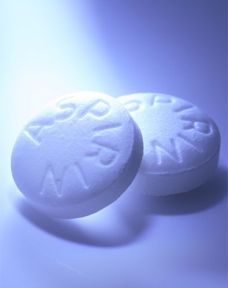Low-Dose Aspirin Protects Against Prostate Cancer in Cardio- and Cerebrovascular Disease Patients
Long-term regular use of low-dose aspirin was associated with a decreased risk of prostate cancer in individuals with cardio- or cerebrovascular disease.
Image © Hurst Photo / Shutterstock.com

Long-term regular use of low-dose aspirin was associated with a decreased risk of prostate cancer in individuals with cardio- or cerebrovascular disease, according to a large cohort study.
“A growing body of evidence indicates that [low-dose aspirin] may reduce the risk of developing some types of cancer, cancer-related metastases and mortality,” wrote study authors led by Francesco Lapi, PharmD, PhD, of the Italian College of General Practitioners and Primary Care in Florence. “The protective effect of aspirin is likely due to the inhibition of cyclooxygenase enzymes, which are over-expressed in tumor cell lines and seem to play an important role in carcinogenesis” and related processes.
In the new study, the researchers retrospectively analyzed outcomes from a national database. The cohort included 13,453 patients, all of whom were diagnosed with either ischemic cardiovascular or cerebrovascular disease between 2002 and 2012. The results were published online ahead of print in the International Journal of Cancer.
The patients were followed for a mean of 5.54 years. The overall prostate cancer incidence during the follow-up period was 2.5 per 1,000 person-years.
The primary analysis showed that low-dose aspirin users had a significantly lower risk of prostate cancer than non-users. The incidence rate among aspirin users was 2.17 per 1,000 person-years, compared with 2.95 in the non-user group, yielding an adjusted hazard ratio (HR) of 0.64 (95% CI, 0.48–0.86).
Low-dose aspirin users who had used aspirin for at least 5 years had an even lower rate of prostate cancer, with an HR compared to non-users of 0.42 (95% CI, 0.21–0.91). Only those who took aspirin more than twice per week saw a significant reduction in prostate cancer risk, with an HR of 0.60 (95% CI, 0.43–0.83), while those who took it up to twice per week did not. Those taking a dose below 100 had a significant reduction in risk, while those taking a dose at 100 mg or higher did not.
“Our results showed that [low-dose aspirin] use was associated with a reduction of prostate cancer risk,” the authors concluded. “Overall, we found a protective effect which was greater than those observed in prior studies.” They did note that they could not exclude the possibility of a “healthy-user” effect on the results-that is, patients in secondary prevention for cardiovascular or cerebrovascular disease and low-dose aspirin users may be more likely to take other healthy or preventive measures which could influence outcomes.
Prolaris in Practice: Guiding ADT Benefits, Clinical Application, and Expert Insights From ACRO 2025
April 15th 2025Steven E. Finkelstein, MD, DABR, FACRO discuses how Prolaris distinguishes itself from other genomic biomarker platforms by providing uniquely actionable clinical information that quantifies the absolute benefit of androgen deprivation therapy when added to radiation therapy, offering clinicians a more precise tool for personalizing prostate cancer treatment strategies.